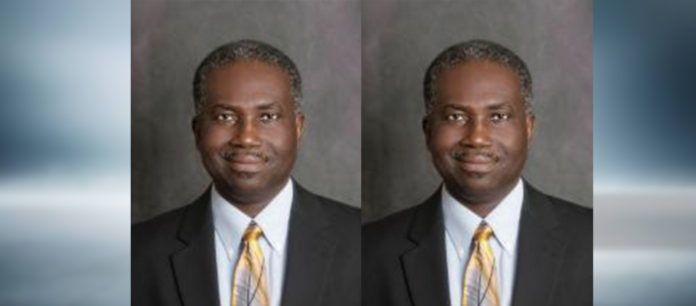I started writing this piece after reading an article in the New York Times Magazine on June 20, 2021, titled Finding My Father, written by Nicholas Casey, the Times’ Madrid Bureau chief. It is also out of a strong desire to talk about my father, I. K. Nkrumah, the father I barely knew. In a way, it is also, I suppose, a way of seeking closure in a relationship he and I never had.
Last Fathers’ Day, my daughter, Elizabeth Erica Andoh, gave me a little book titled Dad: I Want to Hear Your Story. I realized then that I had some missing pieces in my life about my relationship with my father, I. K. Nkrumah; I barely knew him.
Psychologists say that the absence of a father can lead to severe psychological problems for children and potentially affect their future adversely. Growing up in a matrilineal society in Ghana, I do not think such was my case. There were so many uncles and surrogate fathers in my life that I did not miss my father.
Indeed, sometimes, I wonder if I could have turned out any better had my father been in my life. I do not think I suffer from any psychological deficiency that children of absentee fathers are supposed to suffer. Was it luck, culture, or the hard work Elizabeth Ekua Andoh, my mother, put in raising me? Perhaps the whole village of uncles helped me to escape the adverse effects of an absent father. I do not know.
In my adulthood, I realize that the hold my absent father had, and still has over me, is ever-present and quite strong. My mother always ensured that I did not lack affection, material needs, or education. Yet, I realize that my father still lives in me and that he has not been completely excised from my subconscious. He surfaces now and then to remind me that he is still my father, such as when I wonder if I look like him or not, whether I speak like him or not, what mannerisms of his I have? Why is it that my left knee hurts?
I was born I. K. Nkrumah Jr., to a prominent Ghanaian journalist, I. K. Nkrumah, and Elizabeth Ekua Andoh. My children say I am Fanzema because my grandmother was from Essiama (Nzema) and my father from Abora Obohen (Fanti), hence Fanzema. At home, I was Kojo Apprey, Apprey being the name of my father’s father and the name my father was enstooled in his later years. My father, I. K. Nkrumah, was editor of the popular Ghanaian newspaper, Daily Graphic, until the February 24, 1966 coup d’état, which toppled his namesake, President Kwame Nkrumah (no relations though).
By the time I left primary school in the 1960s, my name had changed to Samuel K. Andoh, after my maternal grandfather. I did not know why and did not ask. In a culture where you claim your lineage from your mother, the matter was unimportant; after all, I belonged to my mother’s ebusua (family).
I was in Secondary School at Fijai when Kwesi Lamptey, a politician from Sekondi, detained by Kwame Nkrumah in the early 1960s, came to teach after his release. Kwesi, as he was affectionately called, had been a teacher at the school before his detention and had come back to resume his teaching. By this time, I had been Andoh for a long time, and whatever memories I had of ever having been Nkrumah had recessed into the distant past.
The first time Kwesi Lamptey saw me at the school, he called out “Nkrumah.” I was surprised, he had not met me before, and I only knew of him as a new master. Nobody had called me Nkrumah for a long time. I corrected him, telling him my name was Andoh. He explained that I looked like I. K. Nkrumah, the “good Nkrumah,” he said. He had met my father when they were both on the same ship sailing to the Gold Coast (now Ghana) from London, and they had become friends.
I told him the “good Nkrumah” was my biological father but that I did not use his name. It did not make any difference to him, I was Nkrumah, and Nkrumah I was to remain as far as he was concerned, as long as he was a master in the school.
Author : Kojo Apprey (Samuel K Andoh)
Samuel K Andoh is a Professor and former Dean of the School of Business, at Southern Connecticut State University.
Disclaimer: The views and opinions expressed in this article are those of the authors and do not necessarily reflect the official policy or position of Ghanaian American Journal. Any content provided by our bloggers or authors are of their opinion and are not intended to malign any religion, ethnic group, club, organization, company, individual or anyone or anything.



[…] Nigeria :10 million youth to be employed for… My Father, I.K. Nkrumah: The Father I Barely… My Father, I.K. Nkrumah: The Father I Barely… Miss USA 2019 : Cheslie Kryst dies at… 2 nurses arrested after making $1.5m in fake… […]